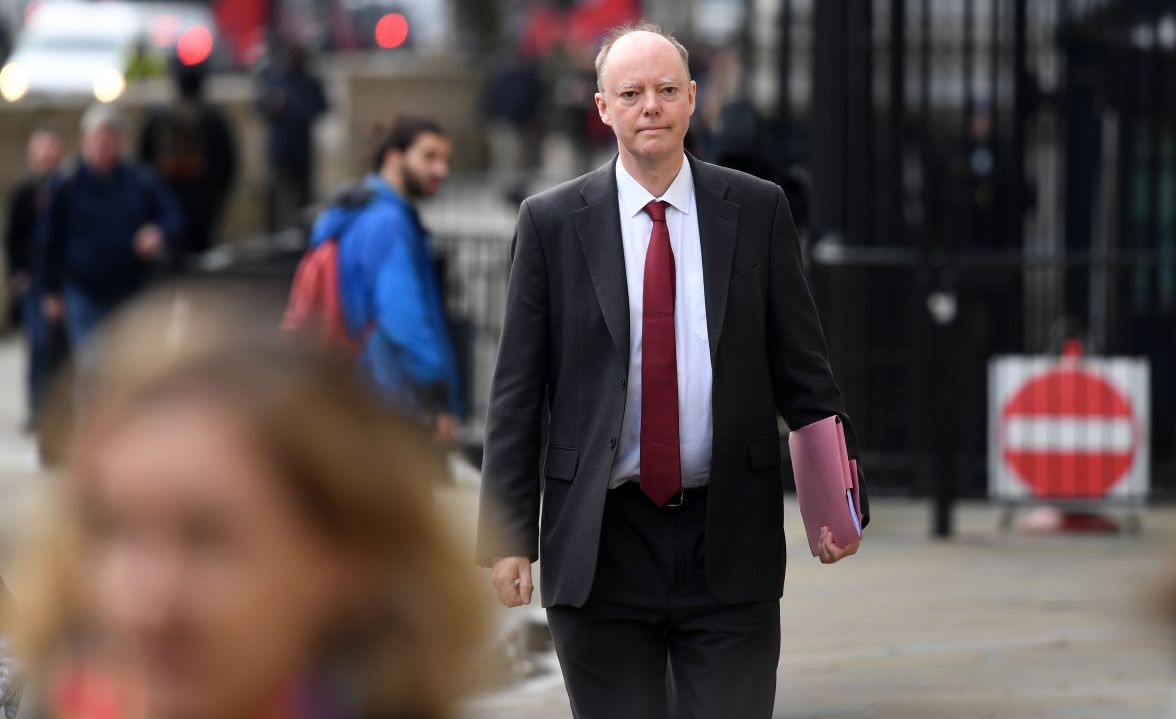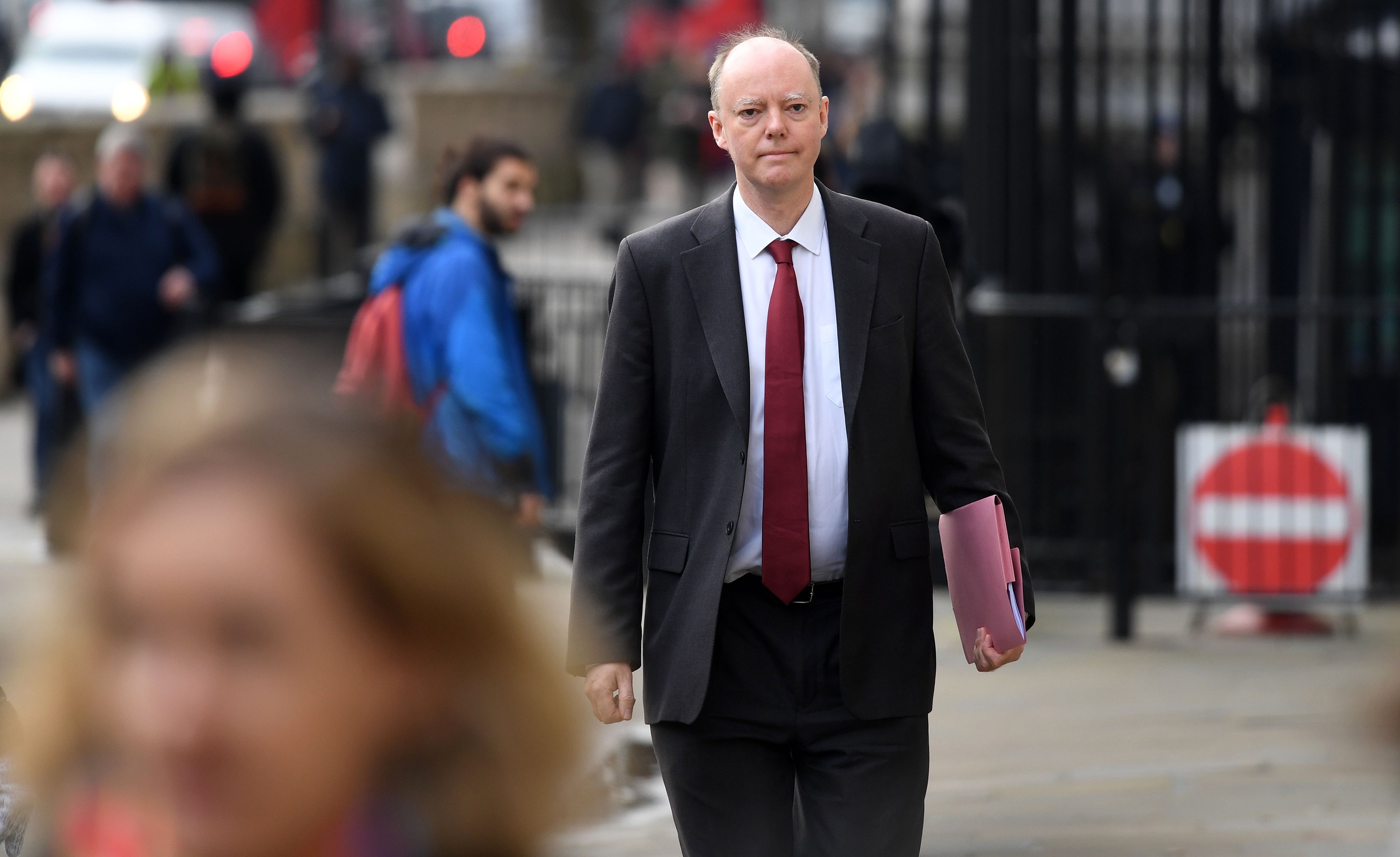After the bitter battles over Brexit, during which the truth was stretched to breaking point by those on both sides of a profoundly emotive argument, to have someone in authority give a balanced, well-informed and non-hyperbolic account of the government’s handling of the biggest event of the moment comes as a huge relief.
England’s Chief Medical Officer Professor Chris Whitty is doing just that on coronavirus, reminding us all that in some fields – medicine foremost among them – expertise really is a quality to be heeded and not distrusted.
The uncertainties of economics give it a justifiable reputation as ‘the dismal science’ and all of us who blew raspberries at Treasury and Bank of England forecasts of a Brexit referendum vote leading to immediate meltdown feel fully vindicated. But medicine, including public health policy, is a different kettle of fish.
Prof Whitty, in his calm and measured way, finds himself – probably by accident – now leading a welcome counter-revolution in political culture. This embryonic epidemic is simply too serious to be contained within the ultra-adversarial culture war that shapes most of our political discourse these days.
People are going to die – some already have done – on the watch of Boris Johnson and yet almost nobody is going to yell that it is his fault or that he is a murderer. While the most hardline practitioners on the left have absurdly branded the PM an uncaring traitor for not donning his green wellies to go around the country stirring up apathy in the midst of the recent floods, even they are not – at least not yet – ready to blame him for an infectious disease that started off in China.
By treating us like intelligent adults he puts an onus upon us to behave as such
And likewise, neither are government ministers making unrealistic promises about key deadlines that cannot, in fact, be guaranteed.
Instead, we have Prof Whitty speaking in grown-up terms about the probabilities and the unknowables which shape policy decisions.
If the country is not panicking at the now fairly-rapid spread of Covid-19 then that may well be because Prof Whitty already told us what was going to happen. Back on February 28, when the UK had just 16 confirmed cases, he warned it was ‘just a matter of time’ before we saw a spread across the country.
And if the country reacts in a calm and mature manner to impending restrictions on large gatherings, which would have seemed alarmist and draconian had they been suddenly unveiled by a publicity-hungry minister, then again that will probably be because Prof Whitty has reassured us that there is a wise and authoritative hand at the tiller.
Again at the end of last month, he told us to expect a ‘social cost’ if the virus intensified, saying: ‘One of the things that’s really clear with this virus, much more so than flu, is that anything we do we’re going to have to do for quite a long period of time, probably more than two months.’
While the Prime Minister has gone into chairman-of-the-board mode (also known among his inner-circle as ‘London Mayoral Mode’), it is the submissions of Whitty and other medical experts that are shaping policy decisions and overall strategy at Cobra meetings.
Most interested observers – and on this issue that means nearly all of us – know that we are on the cusp of moving from the ‘contain’ phase to the ‘delay’ phase and that this will likely involve active inconvenience and aggravation.
Interestingly, even those broadcasters who came to regard interviews as combat events during the Brexit years, are turning down the volume to allow Prof Whitty and those ministers briefed by him to make nuanced points, shorn of the absolutes they usually demand.
Today programme presenter Nick Robinson acknowledged a new approach in his diary in the current Spectator magazine, saying: ‘There is a role for conversation as well as confrontation; enquiry not just cross-examination; explanation instead of disputation.’
During a recent interview on Sky News, Prof Whitty frankly acknowledged: ‘I think it is almost certain there will be more cases in the UK, probably a lot more cases… and we would expect some deaths, yes.’ And yet his obvious, grown-up mastery of his brief deterred the interviewer from seeking to use this admission to whip up a panic.
Slender, in his early fifties, balding and softly-spoken, Prof Whitty could be from civil service central casting. In a bygone age, one could imagine him as one of the artist Rene Magritte’s identikit respectable middle-class men in bowler hats.
But he is turning out to be a formidable communicator. By treating us like intelligent adults he puts an onus upon us to behave as such. There is no point pretending that any government could magically guarantee each of us immunity from infection. The sensible course is to follow Prof Whitty’s advice on how to minimise the risk while going about our usual business as far as possible.
So far, the UK has had some of the fewest coronavirus cases of any Western European country with a large population. At the time of writing, our record of 319 cases compares to 673 in Spain, 1,040 in Germany, 1,209 in France and 7,375 in Italy.
The public authorities here may well make mistakes in the handling of this disease – such is life when a complex new threat or challenge bursts on the scene – and certainly the impact of the disease will worsen. But the public seems to have bought into the idea that the people in charge of handling this crisis know what they are doing and Prof Whitty is largely to thank for that.
The last couple of weeks have brought two balding senior civil servants into the national consciousness. The first, Sir Philip Rutnam, had a story to tell that was all about himself and the rights and wrongs of it are yet to be fully discerned. The second, Prof Whitty, has a story to tell which is all about us and keeping us safe.
Few sensible figures in Whitehall will be in any doubt as to which is the wiser template for the future of the British civil service.








Comments